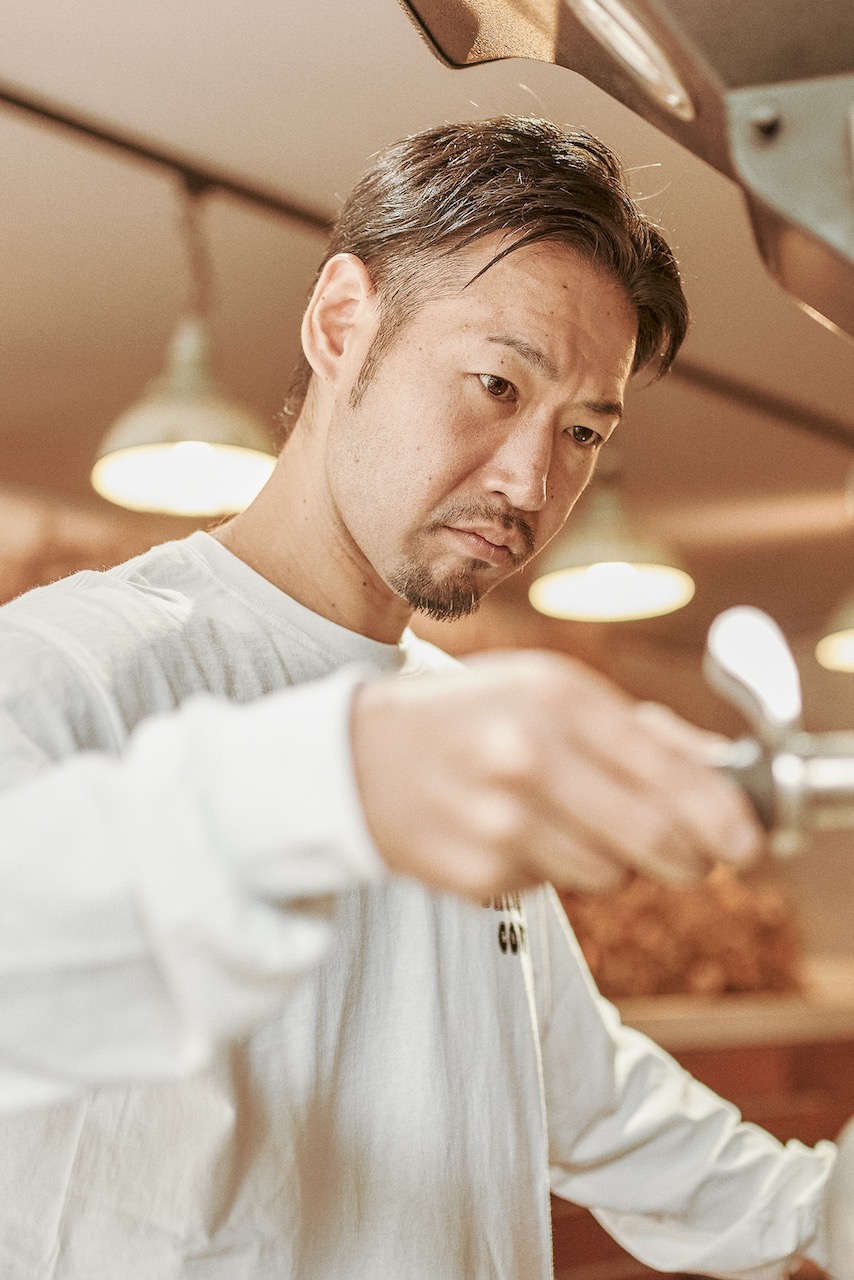
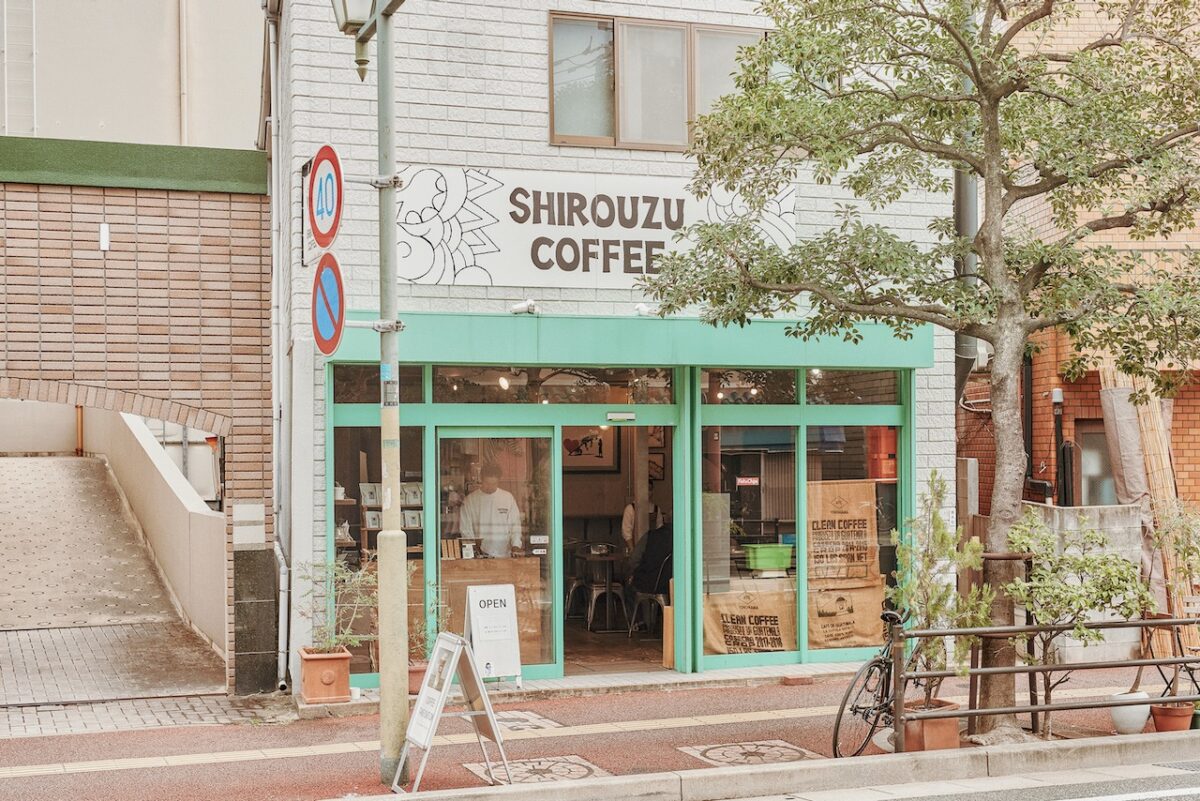
SHIROUZU COFFEE, founded in 2012, now operates two stores inside Fukuoka City that offer high-quality specialty coffee. Its owner, Mr. Kazutoshi Shirouzu, says he decided to open a store despite knowing close to nothing about coffee at the time. What spurred him on? His coffee journey started with a can of coffee whose taste he didn’t particularly think about while drinking. We spoke to him to unravel the path of his life that began with a canned coffee and is now closely connected to coffee.
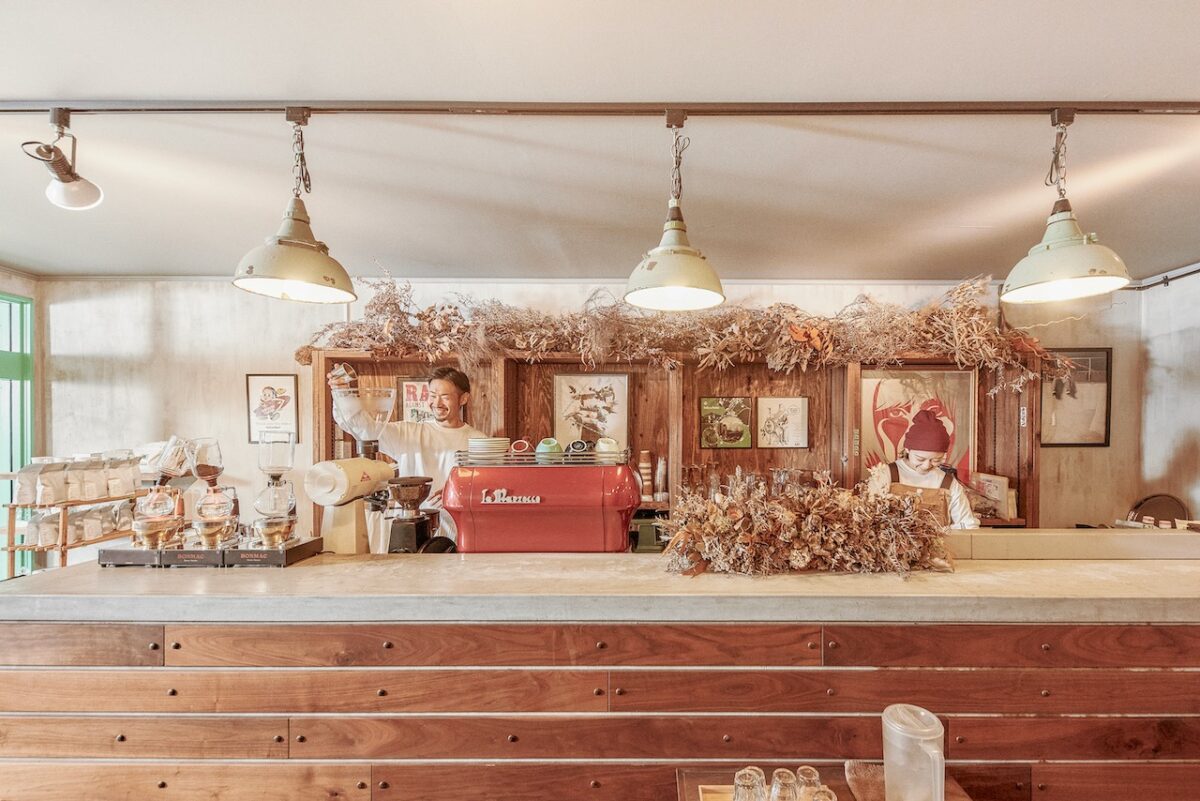
Giving shape to what brings you joy in the moment
SHIROUZU COFFEE’s Minato shop opened in October 2012 in Fukuoka City’s neighborhood of Minato, located in Chuo Ward. In September 2015, its second shop in the ward opened in Kego. The two stores have shockingly different aesthetics.
The Minato shop and roastery, located in a residential area, is a natural yet chic and calm space with trees filling its bare concrete surfaces. Meanwhile, the white and spacious Kego shop is found in a commercial district and has striking, colorful painted exterior walls. The leafy plants placed around the shop make it a green, yet pop place.
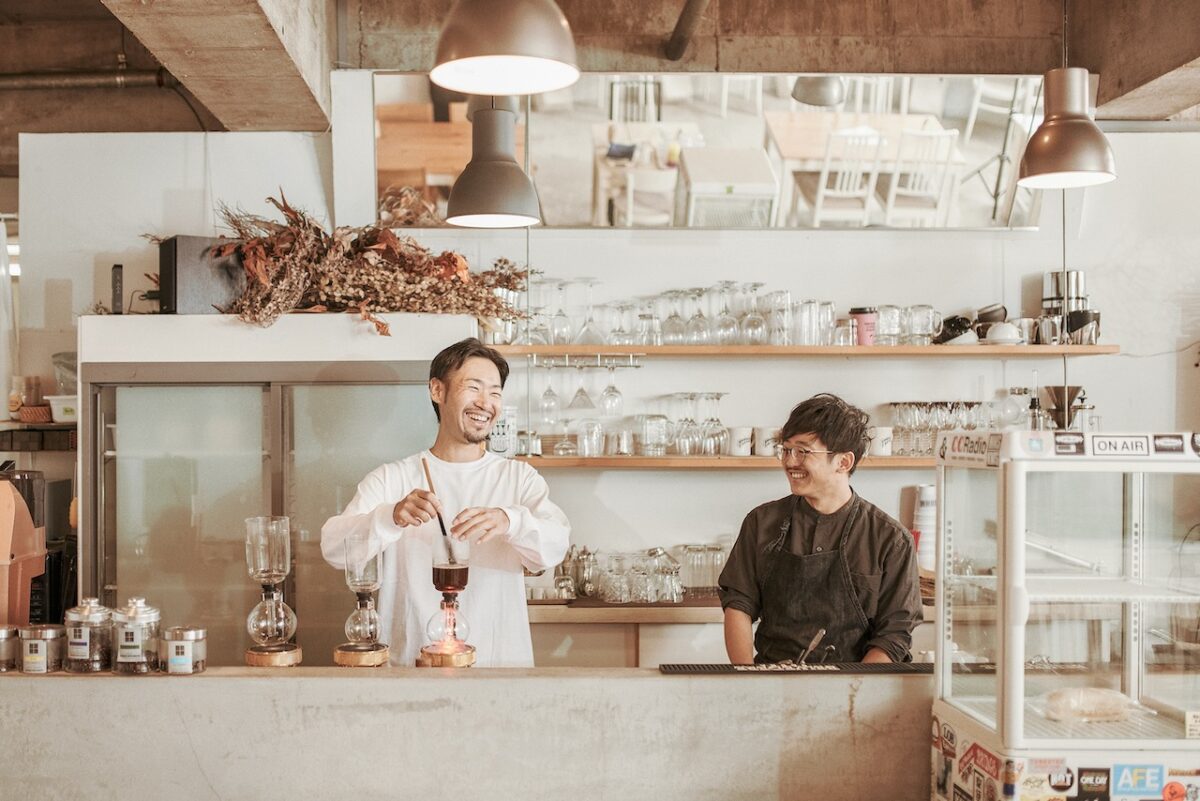
“When I decided to start the shop, I wanted to make it a place where people of all ages from the community could come. That’s why I focused on making the Minato shop a space that wasn’t too challenging, and somewhere anyone could walk into. When I made the Kego shop, I had just come back from America, where I’d gone to study coffee shops. As we made it, I was heavily influenced by the cool shop interiors I’d visited.”
It would seem to be a basic idea to standardize the aesthetic used in branches of the same shop. Yet Kazutoshi valued what resonated within himself in the moment and gave shape to what he enjoyed then. He says that this is a stance he’s always had, before he ever started the shop.

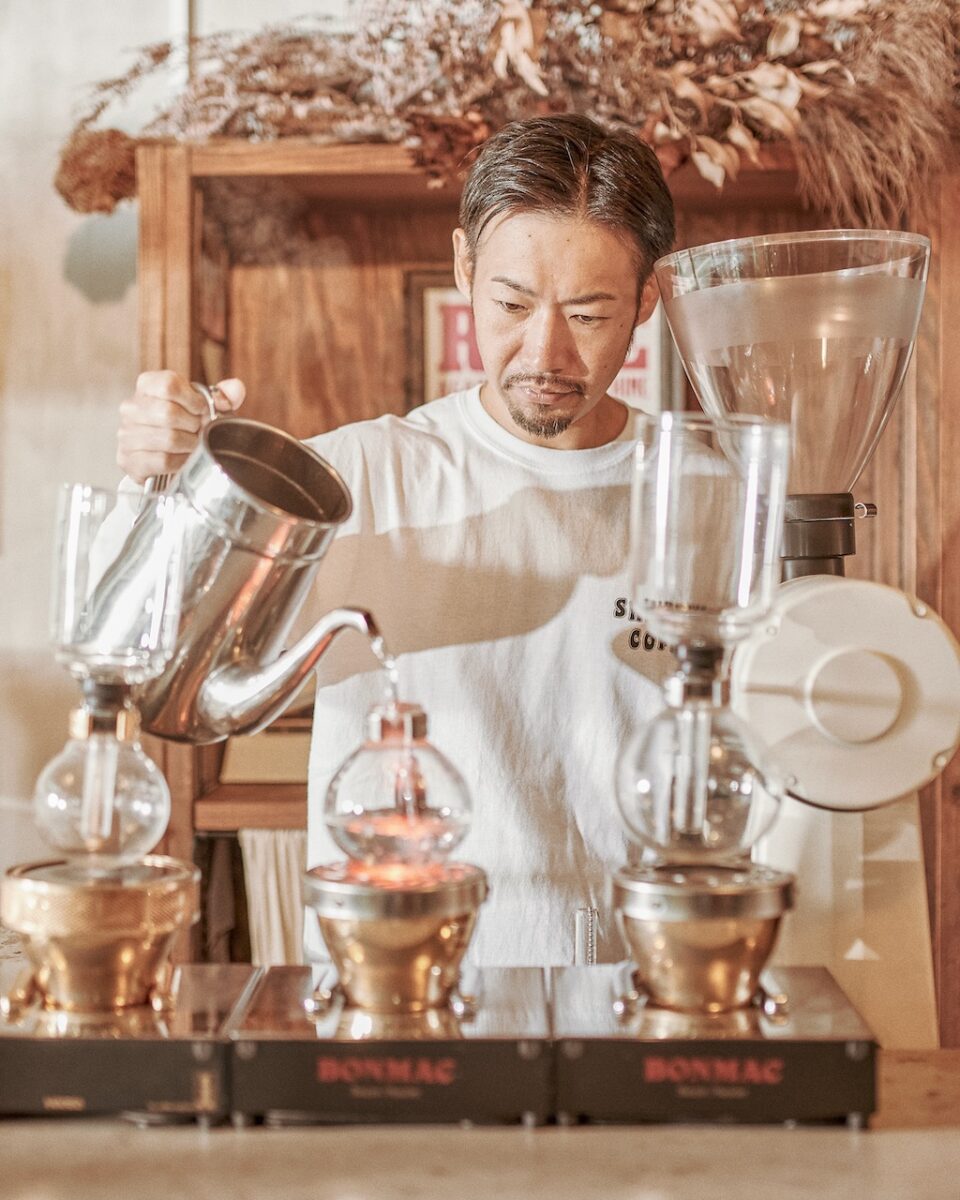
Coffee as something people unconsciously continue to pursue
Even by middle school, Kazutoshi already realized he wasn’t the type who was suited to working on someone else’s payroll, saying that’s when he decided to someday start a store of his own. However, he didn’t know exactly what kind of work he wanted to be in. He developed an interest in fashion in high school and eventually began working at a clothing store. While he enjoyed working in apparel, he gradually began to feel that it wasn’t a job he could do for the rest of his life.
“Trends in the apparel industry change so quickly, and I realized it might be a difficult business for me. Even the store I worked for in the end went bankrupt. What’s more, I felt like it wasn’t the clothes themselves that I liked as much as it was the clothes brands as a whole, such as the films, music, skateboarding, and other kinds of culture they put out. That’s when I realized I wasn’t doing the job because I loved clothes.”
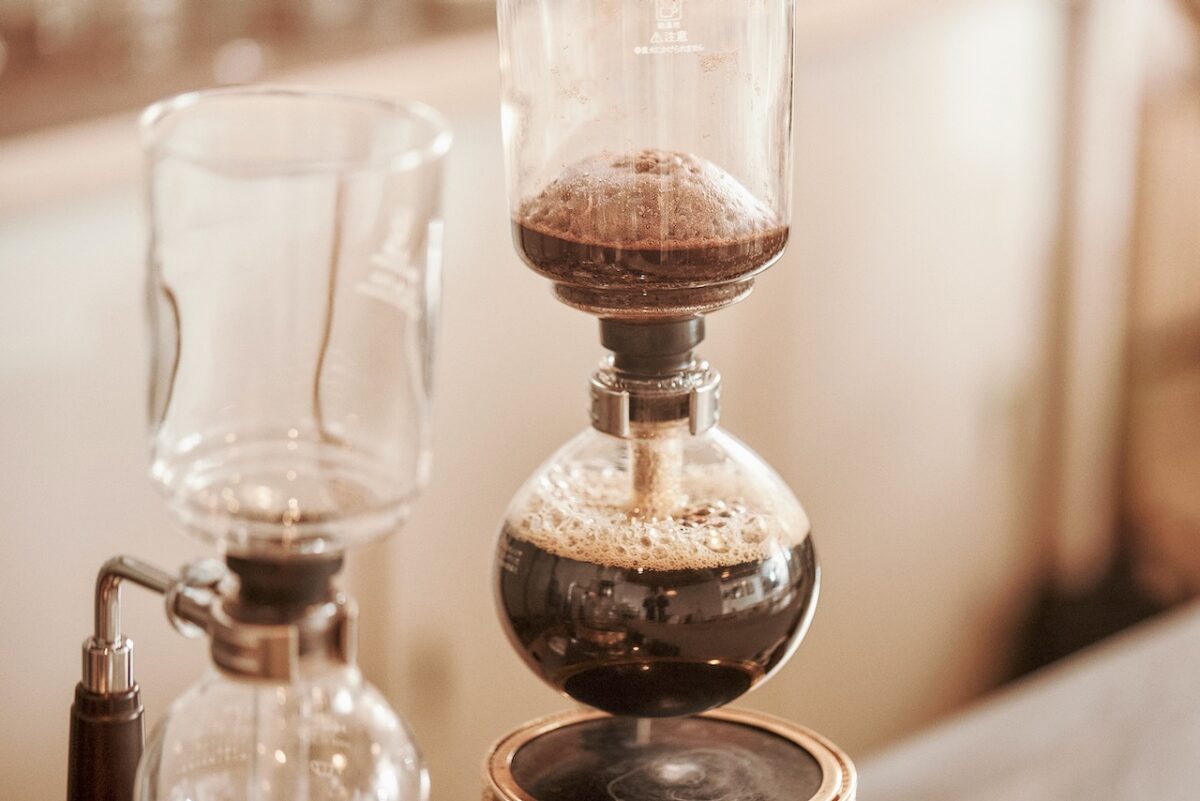
He continued to search, deciding that his next job would be the one he’d pursue for his whole life. That isn’t something you can find right away, but he says he found a clue hidden in an incidental, daily act. One day, as he stood in front of a vending machine to unthinkingly buy a can of coffee as he always did, he realized what he was doing and felt a major possibility hiding there under the surface.
“To me, canned coffee was something I drank for no particular reason. Honestly, I didn’t even think it tasted that good. It was just like smoking cigarettes, where I felt vaguely on-edge without it. There were times when I drank nearly ten cans a day. When I realized that all of us were paying money for it every single day, myself included, it made me think that coffee may be something that people will always unconsciously pursue.”
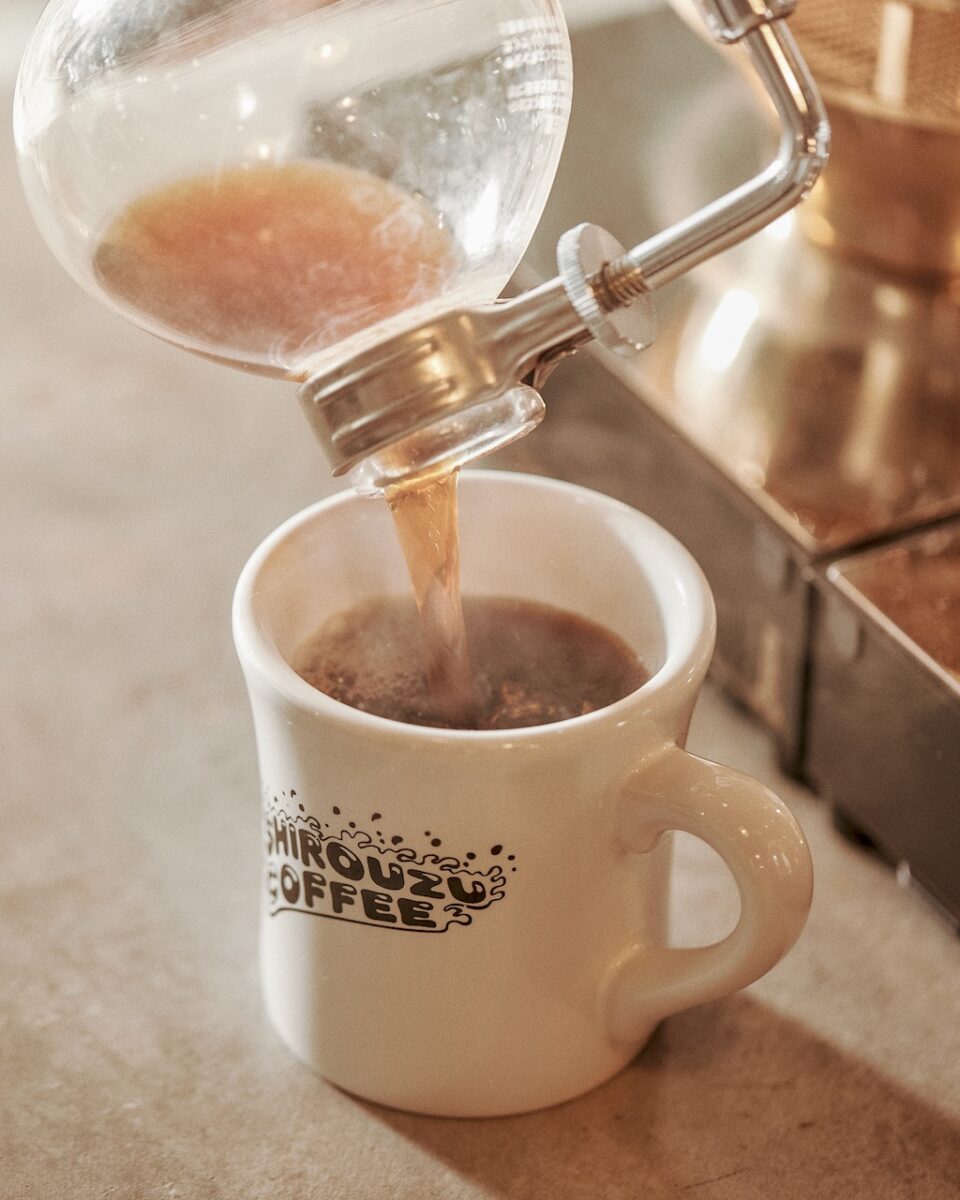
When he gave it more thought, there were many long-standing cafes. He came to realize with more research that coffee shops are a type of business that has existed for over 500 years. In that case, he thought, he could probably keep on going for a long time. He’d also had an interest in creating interior spaces from the time he worked in apparel and felt drawn to the fact that with his own store, he could create the space he wanted.
“I felt like this had to be it. In other words, I decided to start a coffee shop back when I didn’t like coffee at all! It wasn’t until then that I decided to drink proper and delicious coffee for the first time, which was at Coffee Sya Noda, an established café recommended to me by a friend’s parent. I sat at the counter and they poured me a cup of coffee from a siphon right in front of me. I first noticed that the aroma hit me completely differently, and the taste was nothing like canned coffee. I was stunned at how it had no off-tastes at all. It was like I finally understood what good coffee was.”
The moment strengthened Kazutoshi’s conviction, and he made up his mind.
“I’m going to make coffee my life’s work.”
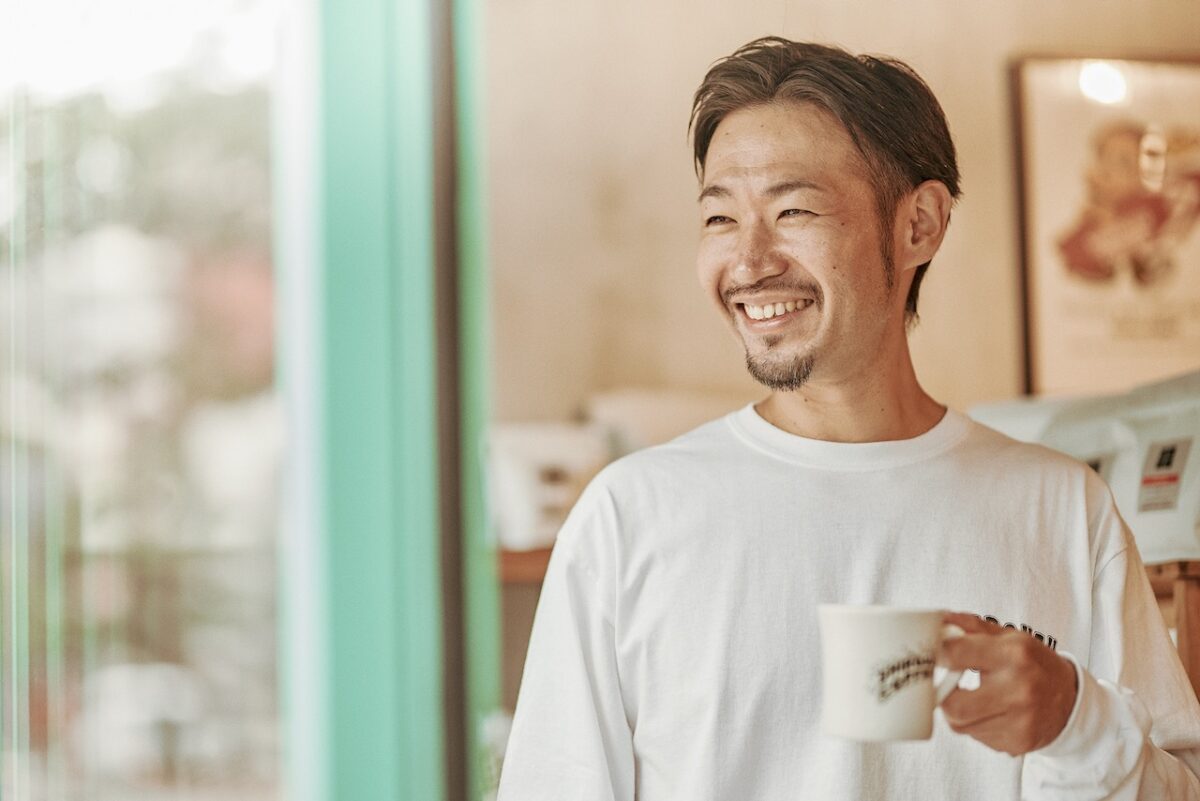
Your individuality always comes out, even if you’re imitating someone else
This decision would have a major effect on Kazutoshi’s life, but he leaped straight into action. Within the week, he contacted Coffee Sya Noda and began working there. At that point in time, he’d only ever tasted canned coffee and that one delicious cup from Coffee Sya Noda. He was an amateur who knew nothing about coffee.
“The day I started working there, I was told to clean the grinder, but I replied, ‘What’s a grinder?'” Kazutoshi recalls with a laugh. “I really didn’t know anything about coffee. The work was tough, and at first I was just made to wash dishes all day long. I wanted to quit after just my first day. The reason I was able to keep going was because I wanted to get an education about coffee under one of my bosses in particular.”
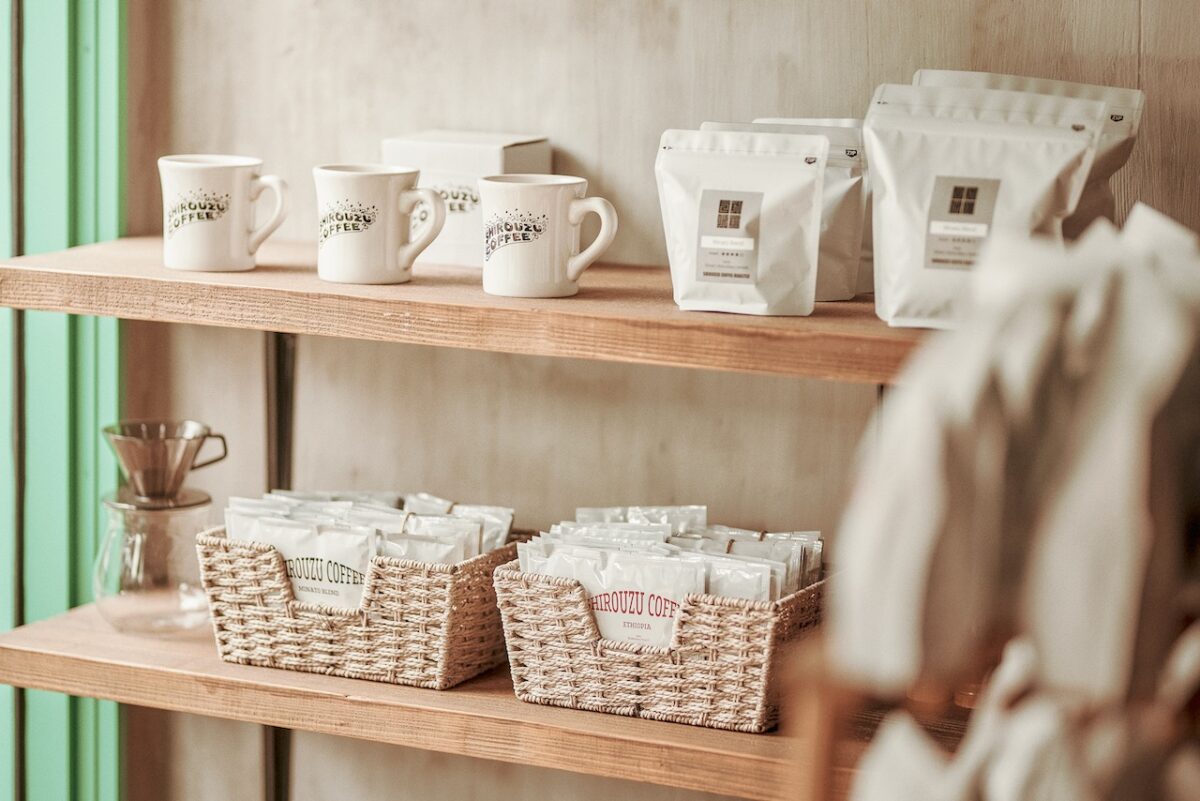
What Kazutoshi heard from this boss who had worked at Noda for over thirty years continues to inform how he approaches coffee and how he manages his stores.
“This person used to often say that your individuality always comes out, even if you’re imitating someone else. That it’s not something that appears because you want it to, but something that appears naturally, even if you’re doing the same thing as everyone else. You need experience for this, though, and the more experience you gain, the more your individuality shines through even in mundane tasks. When I heard that, I thought it was the most impressive thing of all. I liked people who were different or strange until then, in part because I liked street culture. I think I also yearned to be something of an artist myself. After I heard this, my values changed. I, too, wanted to express my individuality through my experience.”
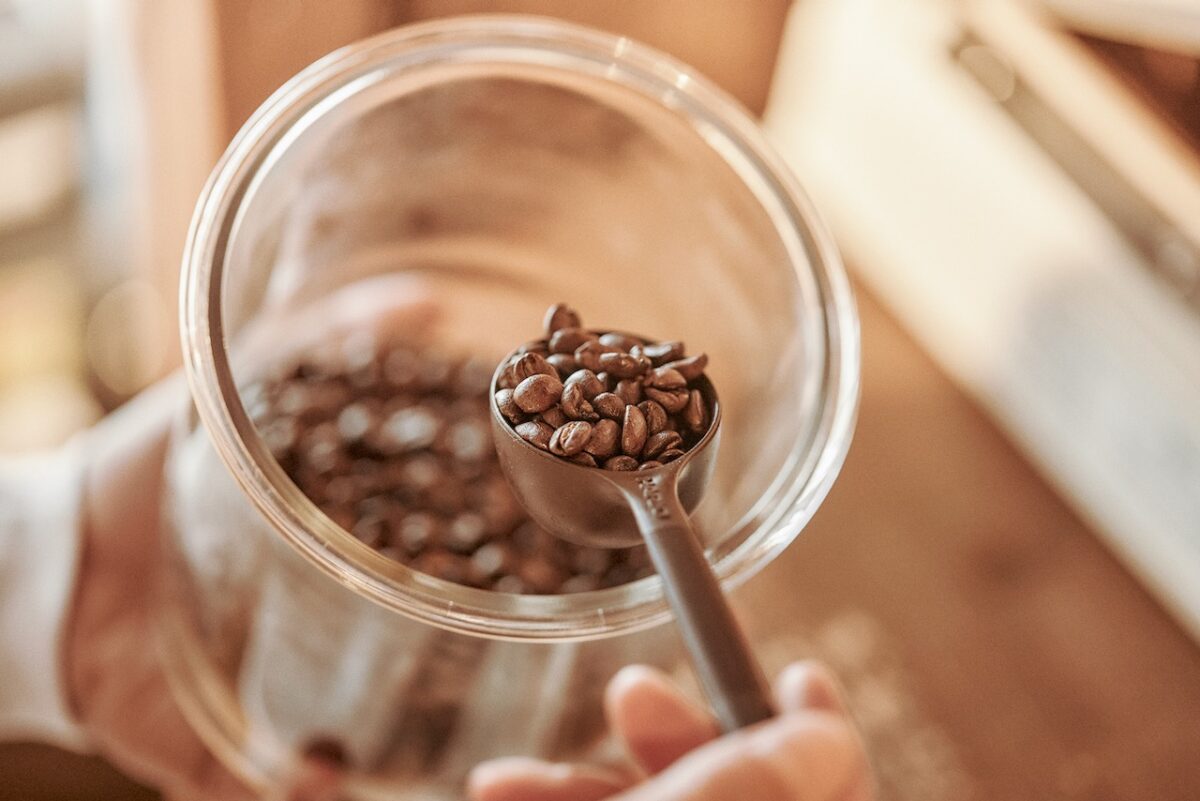
Now when Kazutoshi roasts coffee, he works hard to make use of its strengths and natural flavors to draw out its individuality. He believes that by roasting coffee this way, the individuality of his stores will become naturally apparent without having to resort to any eccentric means.

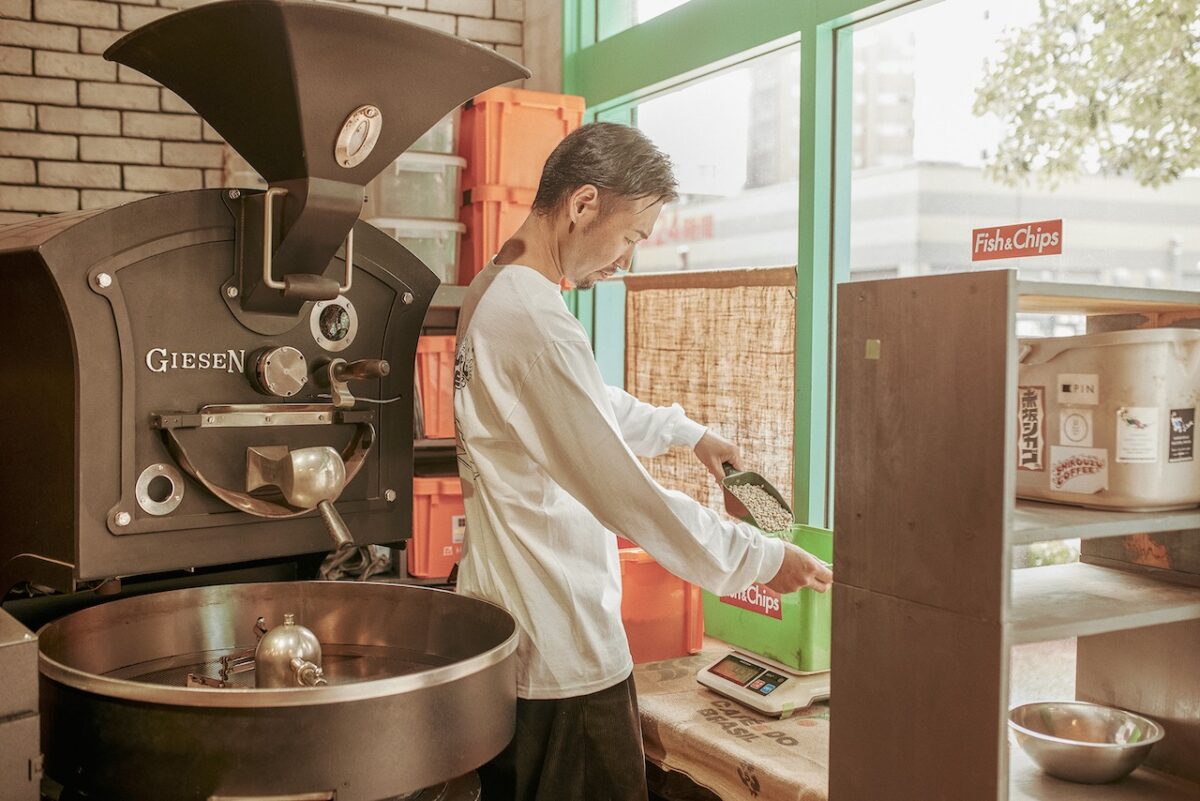
His biggest interest now: roasts that draw out a coffee’s individuality
Ultimately, Kazutoshi decided to make it on his own when he was 30, after five years at Coffee Sya Noda. After searching for roughly a year, he found a building in a residential area, a bit separated from any commercial district. He began with no roastery and only operated a café that served siphon-brewed coffee at first out of a desire to focus on the store’s atmosphere, as well as due to financial issues.
His customers began to grow, and three years later, once the store was running smoothly, he bought the coffee roaster he always wanted and began a roastery. He says he also developed an interest in specialty coffee after learning all about it from his staff members who had worked in stores that specialized in it, and so he decided to serve specialty coffee at the same time he purchased his roaster. He also opened a second store in Kego at around the same time, and he was strongly influenced by the third wave coffee shops that were taking America by storm then.
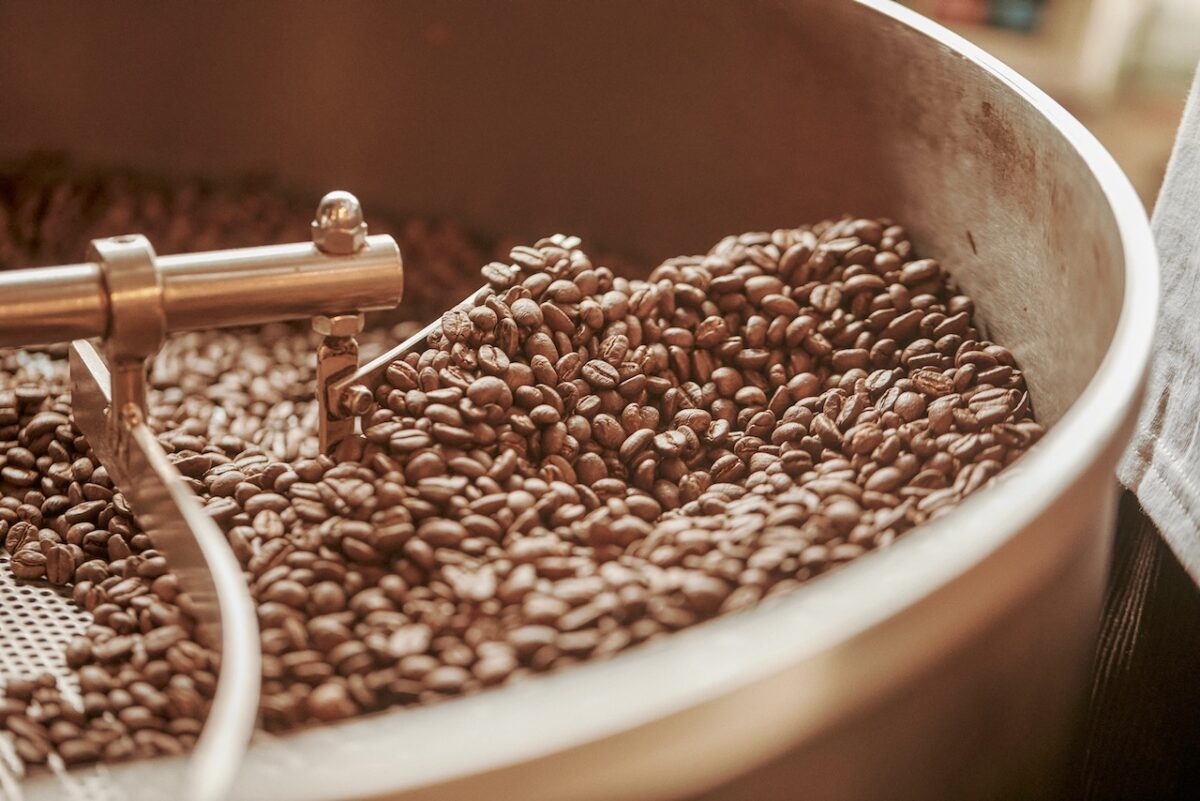
“When I tried roasting coffee in a way that brought out its individuality, the way that third wave shops often do, not only did it align with my tastes, but it was also interesting to see how easily you could understand that coffee’s characteristics. It really made me want to learn more about the nature of a coffee and think about how that should relate to its roast. I continue to work in my stores as a barista and pâtissier. I still want to pursue each of these jobs in depth. That said, if you were to ask me now what I’m most interested in, the answer would have to be roasting.”
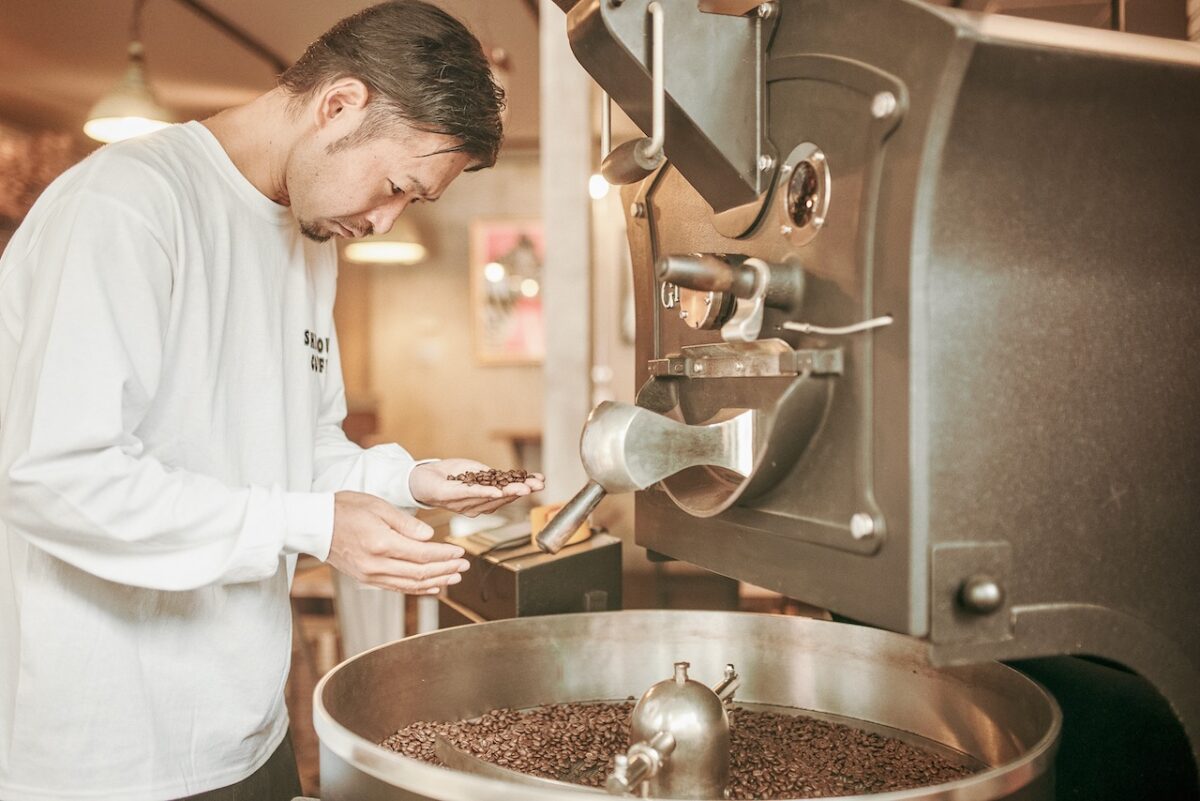
Kazutoshi always had a strong interest in creating an atmosphere, so coffee was originally a tool that embodied an ideal space and allowed him to continue his business. Now, though, he’s interested most of all in roasting. He says that it’s because the more he learns about coffee, the more he discovers he doesn’t know.
“I really think I’ve always been searching for something new. The more you get into coffee, the more you find you don’t know. You can always go deeper. For example, even though coffee is my business, I’ve never seen a flowering coffee plant before. That’s why I’ve decided I’m definitely going to visit the farms in Africa or South and Central America that produce the coffee we use. That’s the kind of unknown thing that comes up as you keep on learning, and that’s why my interest in coffee has always stayed so strong.”

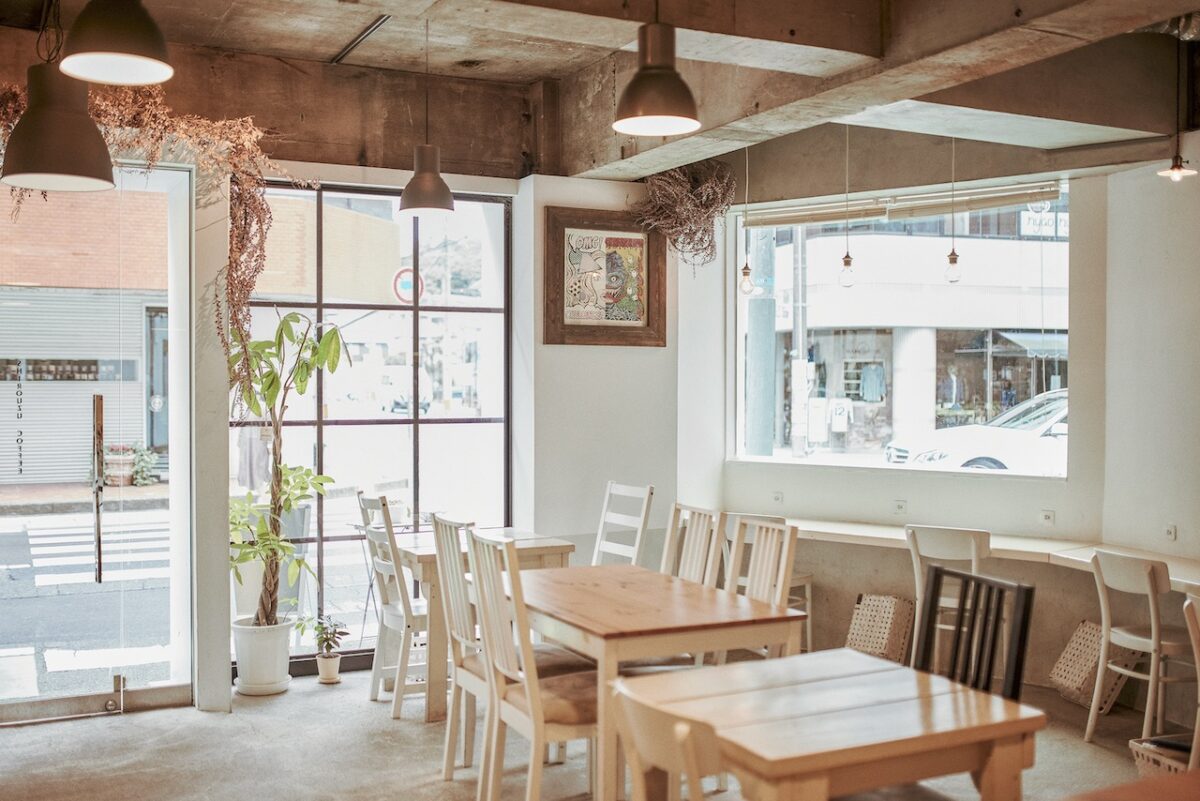
In search of an environment that allows for the careful consideration of roasting
Now, Kazutoshi would like to create an even better roasting environment for his stores. He wants to make a roastery and café in a wide-open space, even if it’s not in a big city. His goal for now is to create an ideal place where he can focus on spending his time in the pursuit of roasting. He says that doing so may not be possible right now, though.
“Lately, I haven’t been able to take in anything new at all, which has meant I’ve stopped being able to put anything out myself. Wanting to go to farms but being unable to for years is part of this, but I’ve barely been able to even leave the prefecture for the last three years or so due to the Covid pandemic. That’s why none of my ideas have reached a level of me wanting to do them right now. For the moment, I think I want to start by taking a lot of new things in.”
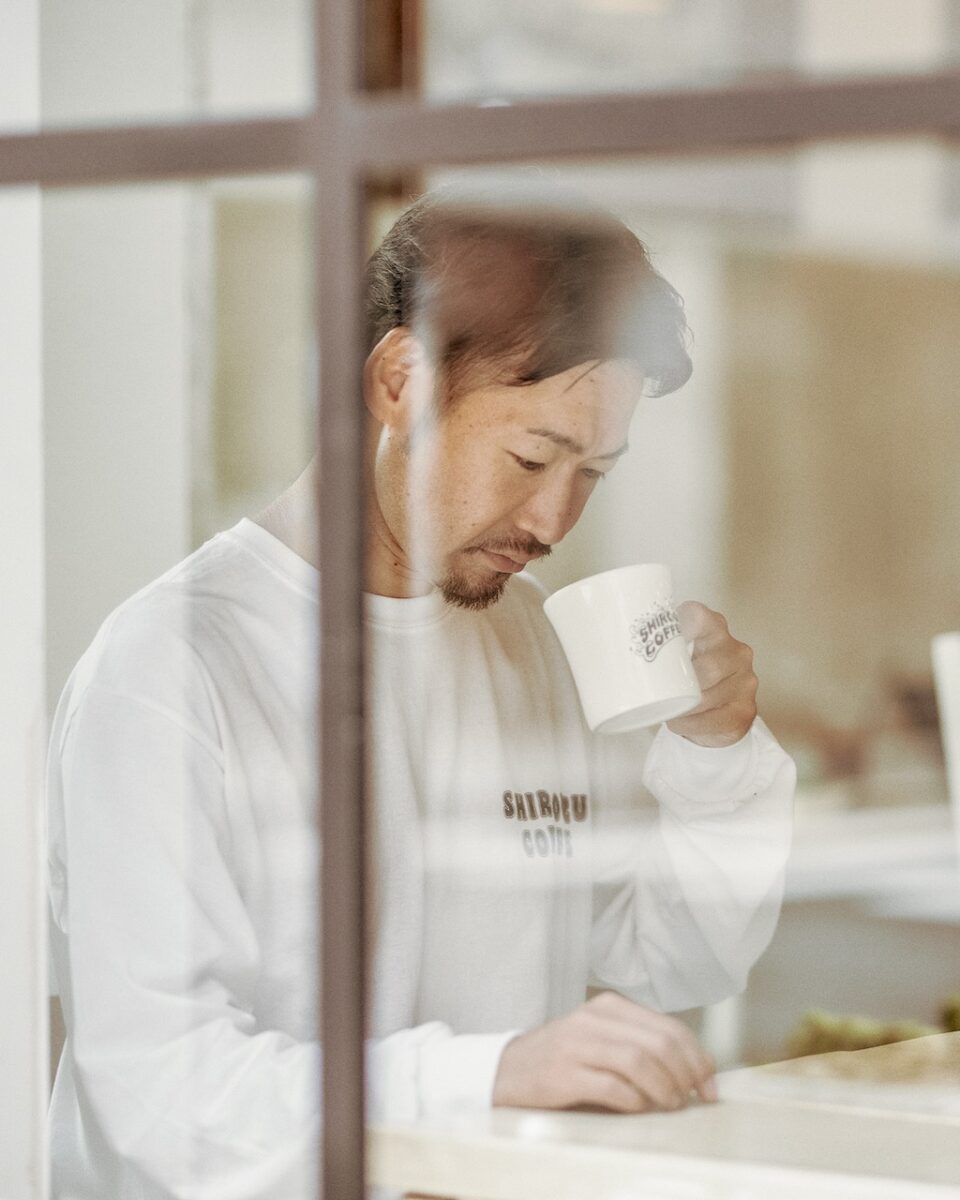
Kazutoshi is the kind of person who is honest and straightforward. He might in fact be able to start a new store where he could make use of his management abilities and natural taste, yet he doesn’t rush or force it. He always remains on the lookout for the next thing to appear that will truly move him.
“I didn’t start working in coffee shops on a whim the way I did with apparel. It was a job I decided I’d do for the rest of my life fifteen years ago. I didn’t know much about coffee then, so maybe in some ways I was just telling myself it would be my life’s work. Nine years later, though, I don’t see my interest in coffee running dry, which is why I think I made the right decision then. I’m going to continue to search for new things, but when I do, they’re always going to be grounded in coffee.”
From apparel to coffee and from an interest in creating spaces to pursuing roasting and coffee itself. Though Kazutoshi’s changing interests can seem almost disconnected at times, they’re all tied together by his personal sensibility. What constantly pushes him forward is the process of learning something new and his desire to explore unknown worlds.
Originally written in Japanese by Yuki Hirakawa
Photography by Kenichi Aikawa

MY FAVORITE COFFEE
I surf as a hobby, and the warm coffee I drink after surfing in the mid-winter sea is truly delicious. Drinking coffee when the weather is cold is enough to delight me on its own.
